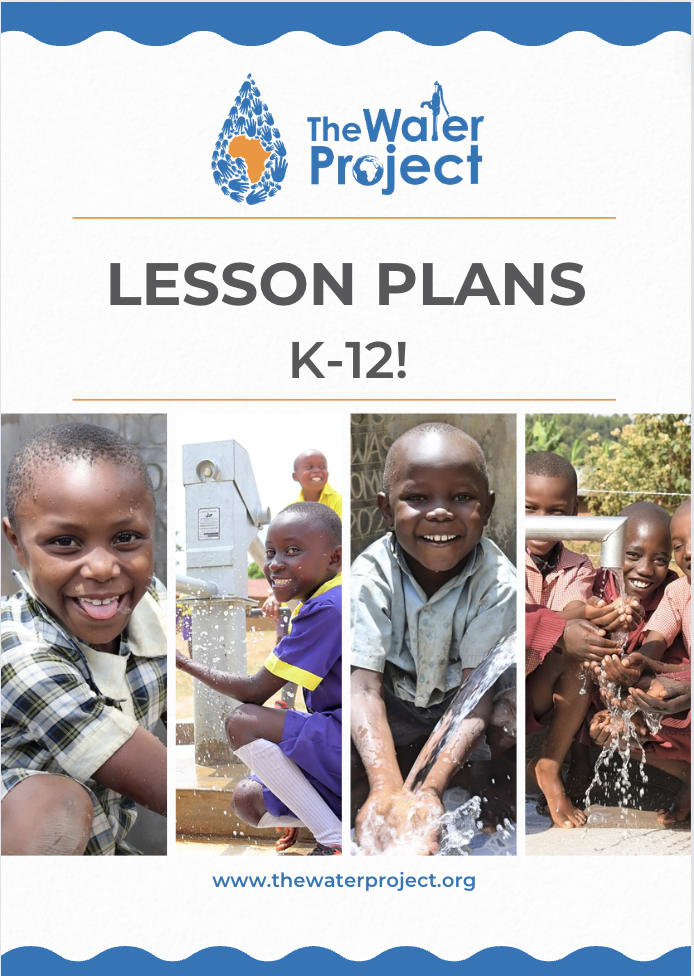The Water Crisis - Lesson Plans for All Grades
Welcome, teachers!
We’re thankful for educators like you who have stumbled upon these lesson plans, whether you’re passionate about water or just seeking to supplement your current syllabus. Either way, we’re so happy you’re here.
The water crisis involves a lot of learning. For those of us whose water comes from a tap on demand, it’s hard to imagine life without it. So many people come to the issue thinking life without a reliable water source is just really inconvenient. It’s much more than that, and our lesson plans have practical ways of showing students why.
Our teacher's guide can be used as a whole or as individual lesson plans across various core subjects. You'll find interactive activities, worksheets, research ideas, and resource lists for you and your students. Together, you'll discover the water crisis and, most importantly, some solutions to solve it for people in need.
Whether you're teaching international issues, social studies, earth sciences, or writing, you'll find our guides helpful in helping your students explore the most foundational issue facing humans today.
We have organized the Teacher's Guide into four easy to use sections. You can preview each lesson below and then download the guide.
Lesson Examples
- "Water, Water Anywhere" illustrates water abundance versus physical and economic scarcity. Students move through three stations where they must fill a water bottle, using different rules at each station.
- "Dirty Water... So What?" uses a jigsaw approach. Students teach each other about four potential effects of water scarcity: poor health, increased hunger, perpetual poverty, and stunted education.
- "Handwashing Hang-Ups" explores the challenges of keeping hands clean and preventing diseases without running water. An optional supplementary section introduces students to an innovative, low-cost handwashing solution called a tippy tap before having them get creative in their own solution-making.
Get Involved
When teachers introduce these problems, students are often motivated to help.
- One great way for kids to start is through The Water Challenge, which raises awareness and funds for the water crisis (without actually requiring anyone to spend any money out-of-pocket)!
- Or, start a class fundraising page that students can share through social media.

